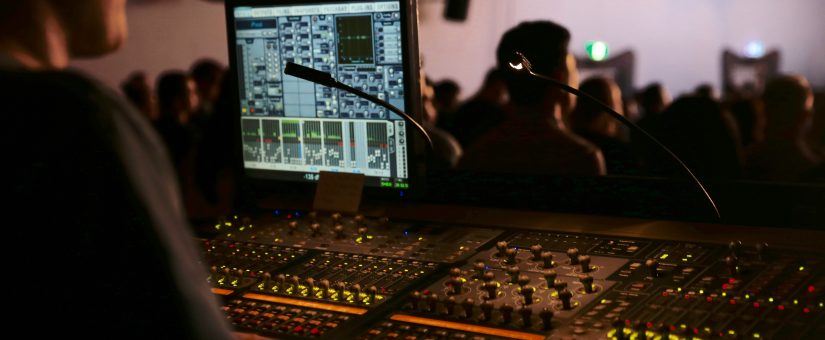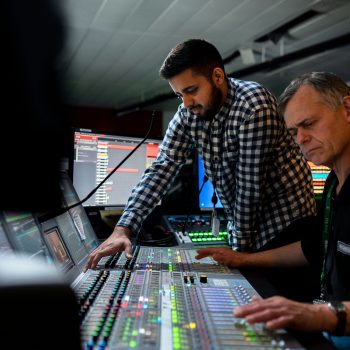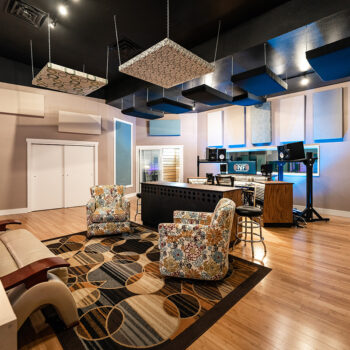
What Does an Audio Engineer Do? A Comprehensive Guide
Audio engineers play a critical role in the music production process, handling everything from the technical aspects of sound recording to mixing and mastering. They ensure that the audio quality of a track, album, or live performance is optimal and that the sound is balanced, dynamic, and polished. Audio engineers work across various genres, with each sub-specialization requiring unique skills and tools. Their work may be behind the scenes, but it is indispensable to the music and entertainment industry.
In this comprehensive guide, we’ll explore the different roles and responsibilities of an audio engineer, the skills and education required to succeed in the field, and the various career paths that an audio engineer might take. We’ll also look at how audio engineers contribute to music production, live sound engineering, post-production, and more.
1. What is an Audio Engineer?
An audio engineer is a professional who works with the technical aspects of sound. Audio engineers typically specialize in one or more of the following areas:
- Recording engineering: Involves capturing and recording sound sources.
- Mixing engineering: Involves balancing and manipulating audio tracks to create a cohesive sound.
- Mastering engineering: Focuses on preparing the final audio for distribution, ensuring the track sounds great on various playback systems.
- Live sound engineering: Manages the sound systems and mixing for live events, ensuring clear, balanced sound for an audience.
- Post-production engineering: Works with audio for film, television, video games, and other media.
In all of these roles, the main job of an audio engineer is to control and shape sound to meet the artistic vision of the producer, artist, or director. They work closely with musicians, producers, filmmakers, and other creatives to achieve the desired sonic result.
2. The Different Types of Audio Engineers
Audio engineering is a broad field with several distinct sub-disciplines, each requiring specialized skills. Below, we break down the primary types of audio engineers and what they do.
A. Recording Engineer
A recording engineer is responsible for capturing high-quality sound during the recording process. They work in studios and oversee the recording of vocals, instruments, or any other sound that will be used in a musical composition or production.
- Set-Up and Equipment: The recording engineer sets up microphones, audio interfaces, and other recording equipment. They choose the appropriate microphones for each instrument or voice based on the sound that the artist or producer is aiming for.
- Tracking: They manage the recording session, ensuring that the levels are appropriate and that all sounds are captured clearly. The recording engineer will monitor input levels to avoid distortion and clipping, ensuring the best possible recording.
- Technical Troubleshooting: They troubleshoot any technical issues that may arise during a recording session, such as malfunctioning equipment or poor microphone placement.
- Session Management: Recording engineers also work closely with the artist and producer to capture the right performance. This could involve arranging multiple takes, making adjustments to the setup, or directing the musicians.
B. Mixing Engineer
A mixing engineer is responsible for combining the individual tracks recorded during a session into a cohesive, balanced mix. This process is both creative and technical, as the engineer has to balance the levels, EQ, dynamics, and effects to ensure each element of the song can be heard clearly and fits well within the overall sound.
- Level Balancing: The mixing engineer ensures that the relative levels of all tracks are balanced so that no instrument or vocal overpowers the others. For example, the vocals should sit on top of the track without drowning out the instrumental parts.
- Equalization (EQ): Mixing engineers use EQ to adjust the frequency balance of each instrument, ensuring that each sound has its own space in the frequency spectrum. This can involve cutting or boosting certain frequencies to make instruments sound better in the context of the mix.
- Panning: They determine the stereo placement of each sound, deciding which instruments will be panned left, right, or center to create a pleasing stereo image.
- Effects and Processing: Mixing engineers apply effects such as reverb, delay, compression, and distortion to enhance the sound. These effects help add space, depth, and character to the track.
- Automation: Many modern DAWs (Digital Audio Workstations) allow engineers to automate changes in volume, panning, and effects. Mixing engineers use this feature to dynamically change how elements of the mix sound at different points in the song.
C. Mastering Engineer
A mastering engineer is the last person to work on the audio before it is distributed to the public. The mastering engineer ensures that the final track is polished, consistent, and optimized for various formats such as CDs, vinyl, streaming platforms, or digital downloads.
- Finalizing the Track: The mastering engineer takes the mixed audio and prepares it for distribution by applying final adjustments to EQ, compression, and loudness. Their goal is to make the track sound its best on all types of playback systems, ensuring the sound translates well from headphones to large stereo systems.
- Sequencing: Mastering engineers are responsible for sequencing the tracks on an album, determining the order in which they will be played. They also manage the spacing between tracks and ensure the transition from one song to the next flows seamlessly.
- Formats: The mastering engineer ensures the track is compatible with various formats and distribution channels. For example, they will make sure the track is optimized for streaming services, vinyl records, or digital download.
D. Live Sound Engineer
A live sound engineer works on live music events, concerts, theater productions, and other performances, ensuring the audience hears the best possible sound.
- Sound System Setup: Live sound engineers are responsible for setting up the sound system at a venue. This includes placing microphones, setting up speakers and monitors, and connecting the sound system to the mixing console.
- Mixing the Show: During the performance, the live sound engineer mixes the sound in real time. They make sure that the sound is clear, balanced, and at the appropriate volume levels. The engineer will adjust the mix as the performance progresses to accommodate changes in dynamics and ensure that all elements of the performance are audible.
- Troubleshooting: In a live setting, anything can go wrong, from faulty microphones to technical glitches. The live sound engineer needs to be quick on their feet, troubleshooting and resolving issues without disrupting the performance.
- Monitoring: Live sound engineers also work with musicians to ensure that they have the correct monitor mix, so they can hear themselves and other band members clearly during the performance.
E. Post-Production Engineer
A post-production engineer works on audio for film, television, and video games. Their role is to ensure that the audio aligns with the visuals and enhances the viewer’s experience.
- Sound Editing: Post-production engineers clean up dialogue, sound effects, and background noise, ensuring that everything sounds clear and well-balanced. They also synchronize the sound with the visual elements, such as making sure the sound of footsteps matches the actor’s movements.
- Sound Design: In film and television, the post-production engineer may also create custom sound effects, such as explosions, ambient noises, or foley sounds. These are often created from scratch or manipulated using various audio editing tools.
- Mixing for Film: After all the sound elements are in place, post-production engineers mix them together, ensuring that the dialogue, music, and sound effects work harmoniously.
3. Skills Required for an Audio Engineer
Becoming a successful audio engineer requires a combination of technical and creative skills. Here are some of the most important abilities an audio engineer should develop:
A. Technical Proficiency
- Understanding of Audio Equipment: Audio engineers must be familiar with various pieces of equipment, such as microphones, audio interfaces, mixing consoles, and software plugins. They should understand how to set up, use, and troubleshoot equipment during a session or live event.
- Digital Audio Workstations (DAWs): An in-depth understanding of DAWs such as Pro Tools, Logic Pro, Ableton Live, or Cubase is essential. These software programs are used for recording, editing, mixing, and mastering audio.
- Sound Theory and Acoustics: Audio engineers should have knowledge of sound waves, frequencies, and acoustics. They must understand how different environments affect sound and how to make adjustments to create the best possible recordings.
- Signal Flow: A deep understanding of signal flow, or how audio moves through the equipment, is critical for troubleshooting technical problems and achieving high-quality sound.
B. Creative Vision
- Aesthetic Sensibility: While much of audio engineering is technical, it’s equally important for engineers to have a good ear for music. They need to know what sounds good and how to make creative decisions that enhance the overall production.
- Problem-Solving: Audio engineers are often required to find creative solutions to technical challenges. Whether it’s making a room sound better acoustically or solving an issue with an artist’s performance, problem-solving is an essential skill.
- Attention to Detail: Audio engineers must pay close attention to every aspect of a track, from tuning the instruments to adjusting the balance between sounds. Even small adjustments can have a big impact on the final result.
C. Communication and Collaboration
- Working with Clients: Audio engineers need to have strong communication skills. They work closely with producers, artists, directors, and other creatives. Listening to the needs and feedback of the client is key to ensuring the final product aligns with their vision.
- Teamwork: Audio engineers often work as part of a team, collaborating with other engineers, musicians, and technical staff. Good interpersonal skills are necessary for a smooth workflow, particularly in fast-paced environments like recording studios or live events.
4. The Education and Path to Becoming an Audio Engineer
While some audio engineers are self-taught, many choose to attend formal education programs that provide a solid foundation in the field. Here’s an overview of the typical path to becoming an audio engineer:
A. Formal Education
Many universities and specialized institutions offer degrees or certificates in audio engineering, music production, or sound design. These programs provide comprehensive training in both the technical and artistic aspects of audio engineering.
- Bachelor’s Degree: Some aspiring audio engineers pursue a Bachelor of Arts (BA) or Bachelor of Science (BS) degree in audio engineering, music production, or a related field. These programs offer in-depth courses on sound theory, recording techniques, acoustics, and music production.
- Certificates and Diplomas: Shorter, more focused programs are also available, often providing practical hands-on training in specific aspects of audio engineering. These programs may last from a few months to a year and can be a good option for those who want to dive into the field quickly.
B. Hands-On Experience
Practical experience is crucial in the audio engineering field. Many engineers start by working as interns at recording studios, live venues, or post-production houses. Gaining hands-on experience allows them to learn the ropes and build a portfolio of work.
C. Networking
Networking is vital in the audio industry. Many engineers find work through industry connections, whether through internships, collaborations, or by attending industry events. Networking can also help engineers stay informed about new technologies and trends in the field.
5. Conclusion
Audio engineers are essential members of the music, film, television, and live event industries, working to ensure that sound is captured, manipulated, and perfected to meet the needs of the project at hand. Whether they are working in the studio, mixing live shows, or editing audio for film, audio engineers play a key role in shaping the final product.
Their work requires a blend of technical expertise, creativity, and problem-solving skills. For anyone interested in becoming an audio engineer, it’s important to gain a deep understanding of both the equipment and the artistic side of sound. With hands-on experience, technical knowledge, and a passion for sound, audio engineers have the opportunity to shape the sonic landscape of many different media and industries.
- On 02/03/2025


